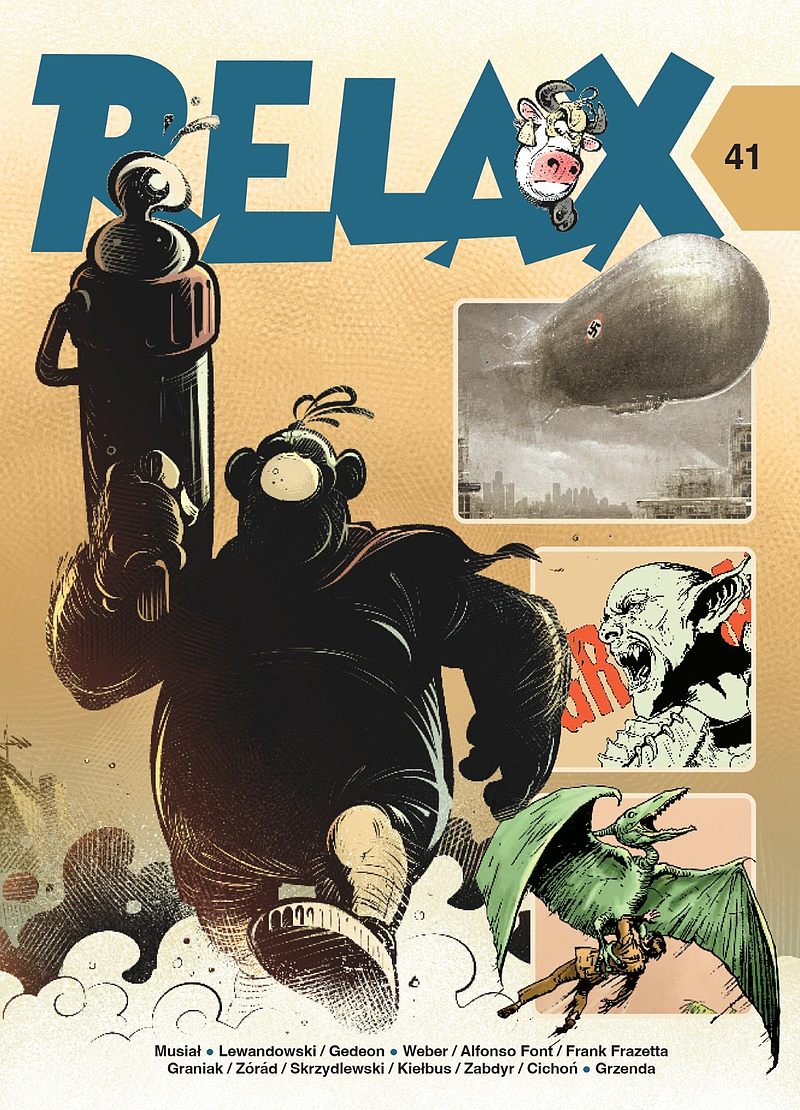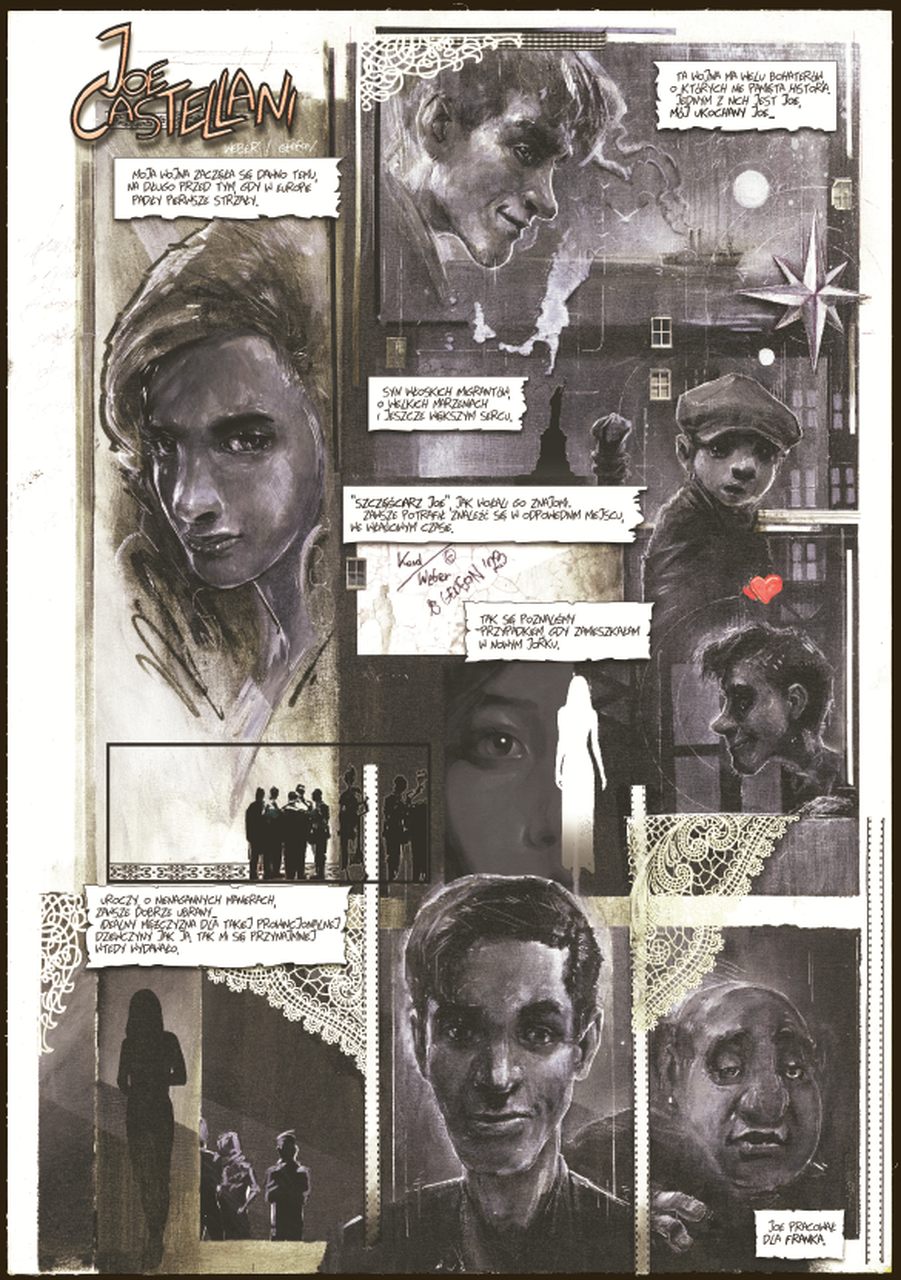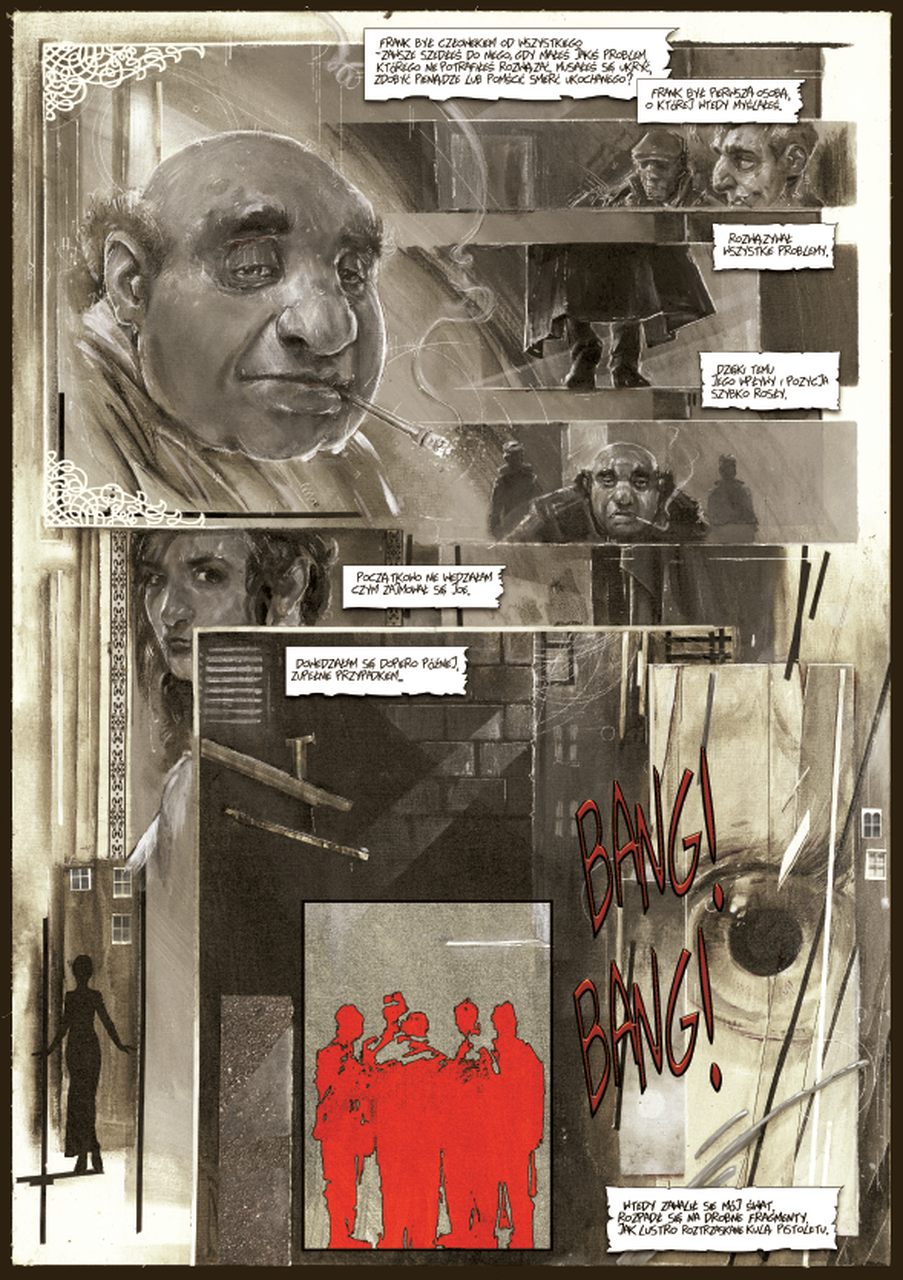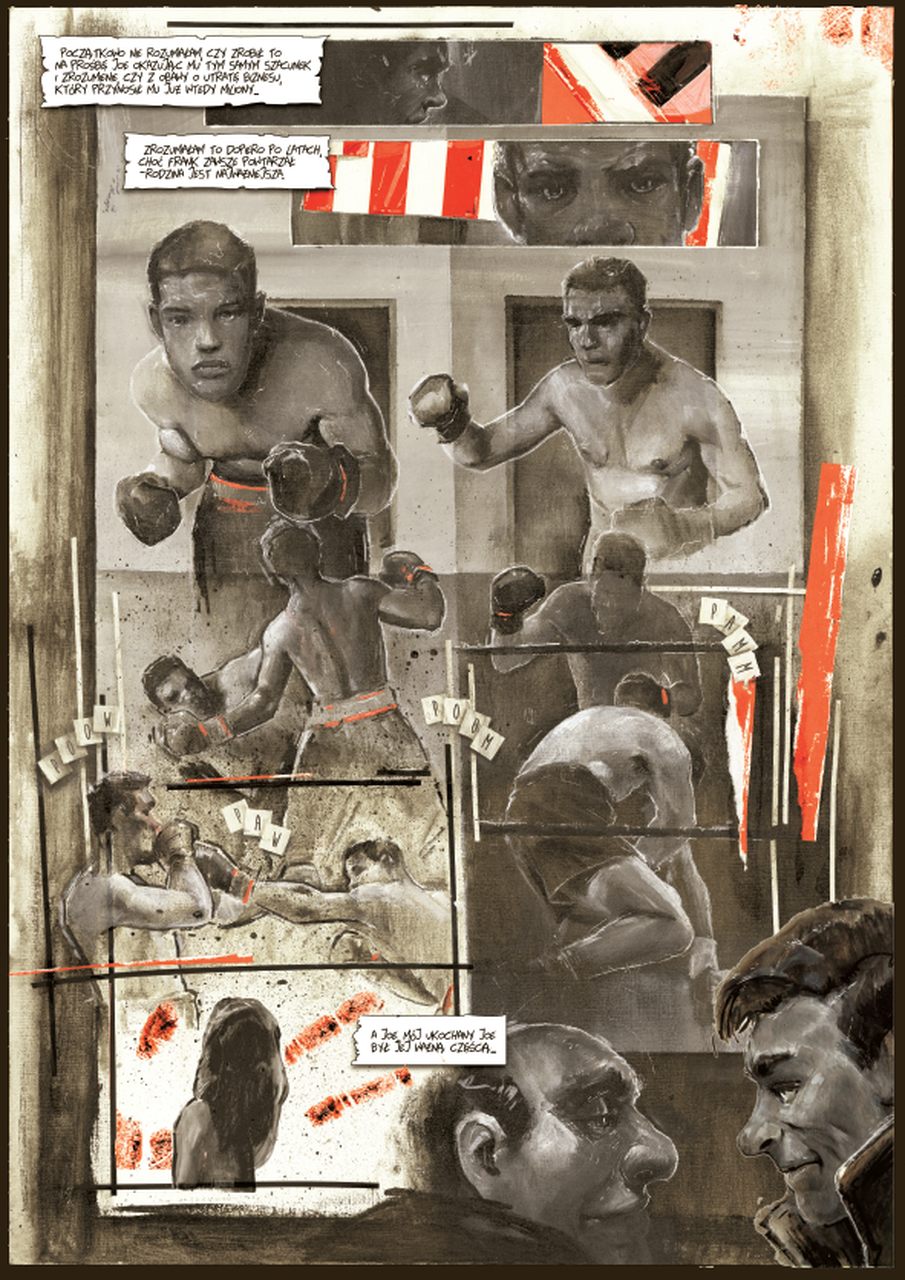
Tales from the Ark: Angel





Title: Joe Castellani
Cooperation: Gedeon
Publication: Relax No 41 (2023.03)
Gangster Gentleman. A review of the story "Joe Castellani"
This time Karol Weber takes us to the United States. We also travel in time, as the story takes place in the late 1930s. The author has already managed to accustom us to such travels in time and space - without complexes he opens to the reader post-apocalyptic spaces, Slavic forests, or dark backstreets of Polish towns.
The U.S. of "Joe..." has everything one would expect from the place and time. In addition, Weber neatly plays with the depicted world, in which he makes the fictional story plausible with real events. Such uncovering of historical tidbits can be an extremely enjoyable game for the informed reader. To the uninformed, on the other hand, it will not prevent the pleasure of reading.
The most delicious of these tidbits, to say the least, the main course of this otherwise perfectly good story is the 1938 boxing match between Joe Louis and Maks Schmeling. For it becomes one of the important elements of the story spun, moreover, not so much by Joe, but by his wife. There is no shortage of the emerging American gangster in this story nor gentleman gangsters in well-tailored suits and elegant women accompanying them. There's also "Lucky Joe," a non-obvious character, a guy with two faces, a hero and a thug...
Joe is a great example of the fact that people are not only good or only bad. Rarely is the world black and white, rather since the dawn of time various shades of gray prevail. Depending especially on who happens to be looking.
Anyway, "Joe Castellani" is not another stereotypical story about the origins of the American mafia. There is a second bottom in this story, and perhaps a third. There's the aforementioned non-obviousness of the characters, the intriguing contrast of the ruthless gang and the fear of the transient, and a place for values. But apart from that, there is an interesting plot, the boxing that is just gaining popularity, and the mafia slogan that family is the most important, the validity of which the author decided to show not on one, but on several levels.
Dr. Milena Koscielniak